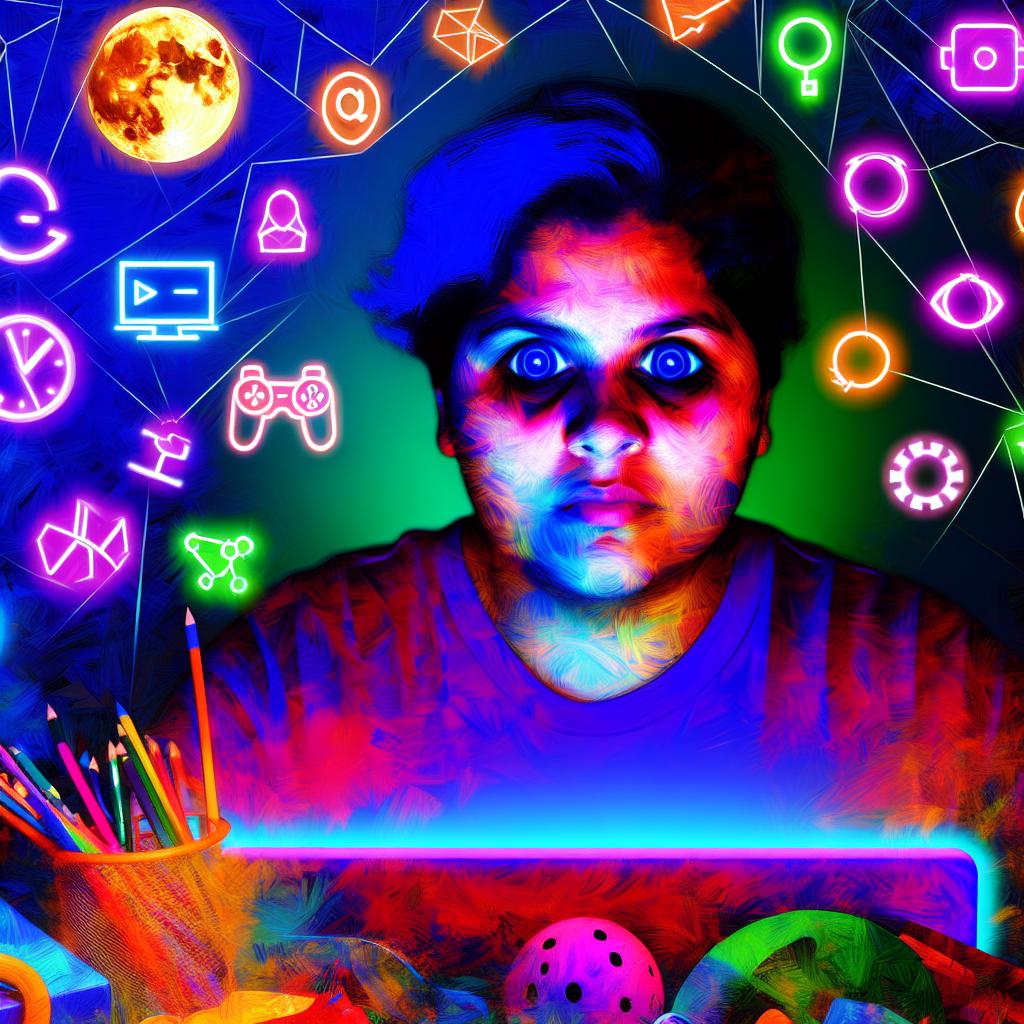Understanding Gaming Addiction
Gaming addiction, also referred to as gaming disorder, is recognized as a mental health condition that can significantly impact an individual’s daily life. Understanding the symptoms is crucial for identifying and addressing the issue effectively. This disorder is characterized by a range of behavioral and psychological symptoms.
Recognizing the Symptoms
Excessive Preoccupation with Gaming:
One of the primary symptoms includes an intense preoccupation with video games. This obsession results in gaming becoming the dominant activity in an individual’s life, overshadowing other interests and responsibilities. Individuals may spend most of their waking hours thinking about past gaming experiences or planning the next opportunity to play, often replaying gaming scenarios in their minds.
Loss of Control:
Individuals suffering from gaming addiction often find it difficult to control their gaming habits. Despite efforts to cut down or stop altogether, they may struggle to maintain control over the time spent playing. Attempts to limit gaming may be unsuccessful, leading to longer gaming sessions than initially intended.
Neglecting Personal and Professional Obligations:
As gaming consumes more time, other important areas of life, such as education, work, and personal relationships, may be neglected. This can lead to a decline in performance and interpersonal conflicts. Prior commitments are often postponed or cancel to prioritize gaming, creating friction with family members, friends, and colleagues.
Withdrawal Symptoms:
When gaming is reduced or ceased, individuals may experience withdrawal symptoms, such as irritability, anxiety, or sadness. These symptoms are often a response to the lack of stimulation provided by gaming. This can mimic the withdrawal experienced in other types of addiction, underscoring the seriousness of the condition.
Using Gaming to Escape Reality:
Gaming may be used as a means of escaping real-life problems or unpleasant emotions. This can lead to a cycle of avoidance and dependency on gaming as a coping mechanism. The immersive nature of games allows individuals to avoid confronting issues and emotions in the real world, increasing reliance on gaming for comfort.
Impact on Mental Health
The mental health implications of gaming addiction are significant. Individuals may develop depression or anxiety due to the stresses of neglected responsibilities and strained relationships. Moreover, the excessive time spent in the virtual world can lead to a lack of social connectivity and real-world interaction, further exacerbating feelings of isolation.
Social isolation is a common consequence, as the focus on gaming can detract from real-life interactions and social skills development. This isolation may eventually heighten feelings of loneliness and depression, creating a feedback loop where increased gaming is used to escape from these negative emotions.
Physical Health Consequences
Aside from mental health issues, there are physical health consequences to consider. Prolonged gaming can lead to a sedentary lifestyle, increasing the risk of obesity and related conditions. Additionally, individuals may experience poor posture, eye strain, and sleep disturbances due to extended gaming sessions.
Eye strain is particularly common due to prolonged screen exposure, potentially leading to vision problems over time. Poor posture from sitting for long hours without proper ergonomic support can result in musculoskeletal issues, including neck and back pain.
Sleep disturbances arise from irregular gaming hours, disrupting the natural sleep-wake cycle. This can lead to sleep deprivation, negatively impacting concentration, mood, and overall health.
Seeking Help and Treatment
For those recognizing these symptoms in themselves or others, seeking help is an important step. Professional treatment options are available and can include therapy, support groups, and potentially medication. Understanding that gaming addiction is a treatable condition is key to recovery.
Cognitive-behavioral therapy (CBT) has proven effective in treating gaming addiction, as it aids in modifying problematic thinking patterns and behaviors. Support groups also provide a communal environment for sharing experiences and strategies, fostering a sense of belonging and understanding.
Medication may be prescribed in cases where co-occurring issues such as depression or anxiety need to be addressed alongside gaming addiction. It’s essential to approach treatment holistically, considering both psychological and physiological aspects of the disorder.
Individuals seeking further information on this topic can explore resources such as those provided by the American Psychological Association. These resources offer detailed insights into the causes, symptoms, and treatments for gaming addiction, supporting individuals and their families in navigating this complex issue.

